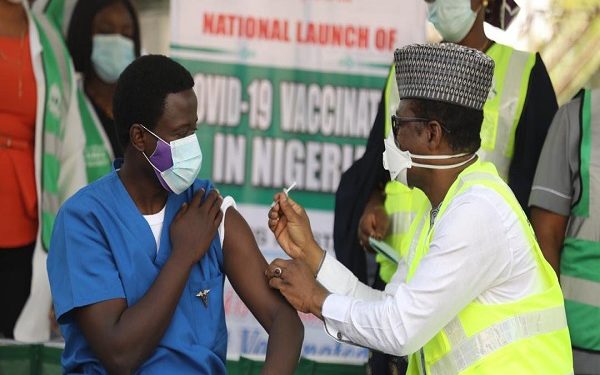

New guidelines from the US Centers for Disease Control and Prevention say people fully vaccinated against Covid-19 can safely visit with other vaccinated people and small groups of unvaccinated people in some circumstances, but there are still important safety precautions needed.
“Covid-19 continues to exert a tremendous toll on our nation. Like you, I want to be able to return to everyday activities and engage with our friends, families, and communities,” CDC Director Dr. Rochelle Walensky said at the White House briefing Monday. “Science, and the protection of public health must guide us as we begin to resume these activities. Today’s action represents an important first step. It is not our final destination.”
“As more people get vaccinated, levels of Covid-19 infection decline in communities, and as our understanding of Covid immunity improves, we look forward to updating these recommendations to the public.”
The CDC defines people who are fully vaccinated as those who are two weeks past their second dose of the Moderna and Pfizer Covid-19 vaccines or two weeks past a single dose of the Johnson & Johnson vaccine. There is growing evidence that people who are vaccinated don’t spread Covid-19, but scientists are still trying to understand how long vaccine protection lasts.
“The level of precautions taken should be determined by the characteristics of the unvaccinated people, who remain unprotected against Covid-19,” the guidelines said.
The new CDC guidance says fully vaccinated people can:
*Visit other vaccinated people indoors without masks or physical distancing
*Visit indoors with unvaccinated people from a single household without masks or physical distancing, if the unvaccinated people are at low risk for severe disease.
*Skip quarantine and testing if exposed to someone who has Covid-19 but are asymptomatic, but should monitor for symptoms for 14 days.
This means that vaccinated grandparents may finally feel comfortable visiting their unvaccinated grandchildren and giving them a big hug, especially if they’re local — the CDC still says people should avoid travel — and as long as none of the unvaccinated people in that household are at risk for severe Covid-19.
And if you and a friend are both vaccinated, you can finally have dinner together.
However, people who are fully vaccinated still need to take precautions in many scenarios. The guidelines say fully vaccinated people must:
*Wear a mask and keep good physical distance around the unvaccinated who are at increased risk for severe Covid-19, or if the unvaccinated person has a household member who is at higher risk
*Wear masks and physically distance when visiting unvaccinated people who are from multiple households.
In addition, fully vaccinated people should continue basic safety precautions, including: wearing a mask that fits well and keeping physical distance in public; avoiding medium- and large-sized crowds; avoiding poorly ventilated public spaces; washing hands frequently; and getting tested for Covid-19 if they feel sick.
So, the vaccinated can’t yet throw a big end-of-the-pandemic party or hang out over cocktails at a crowded bar.
Keep wearing that mask at the grocery store and if your neighborhood holds an in-person meeting, don’t go hugging those you haven’t seen in a while.
If fully vaccinated people live in a non-health care congregate setting, such as a group home or detention facility, they should quarantine for 14 days and get tested if exposed to someone with a suspected or confirmed Covid-19 case.
The guidelines say that the risk of infection in social activities like going to the gym or restaurant is lower for the fully vaccinated. However, people should still take precautions, as transmission risk in these settings is higher and increases the more unvaccinated people are involved. So wear that mask on the treadmill, and if dining out, keep it on while waiting for your meal. (CNN)














